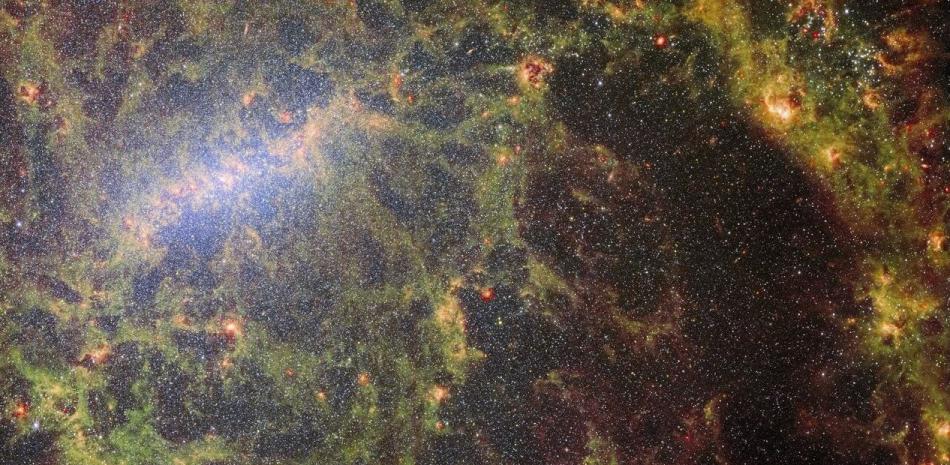Dinosaurs, contrary to what some recent research suggests, were not as intelligent as believed, and although their intelligence was comparable to that of large reptiles, it was by no means comparable to that of apes.
This has now been pointed out by an international team of researchers, thus contradicting a previous study published last year, according to which Tyrannosaurus rex had an exceptionally high number of neurons, directly related to its intelligence, and which they compared to some of the habits of apes.
An international team of paleontologists, behavioral scientists, and neuroscientists re-examined brain size and structure in different dinosaurs. They concluded that they behaved in the same way that crocodiles or lizards behave.
In the new work, the results of which are published today in the journal The Anatomical Record, Researchers from the British universities of Bristol and Southampton participated; Heinrich Heine (Germany); University of Alberta and Royal Ontario Museum -both in Canada-; and Miquel Crusafont Catalan Institute of Paleontology (ICP).
In a study published last year, the researchers maintained that the large number of neurons was directly related to the intelligence of dinosaurs, and cited the cultural transmission of knowledge or the use of tools as examples of cognitive traits that this species may have imparted. , reports a press release from the University of Bristol.
However, the researchers analyzed in detail the techniques they used to estimate brain size and the number of neurons in dinosaurs. They concluded that their conclusions about dinosaur brain size and number of neurons were unreliable.
Over the past few decades, paleontologists and biologists have studied the size and anatomy of dinosaur brains and used this data to infer their behavior and lifestyle.
The research team found that previous studies had overestimated brain size, particularly the frontal lobe, and concluded that neuron count was not a reliable indicator of intelligence in these animals.
In a new paper appearing today, the research team defends that in order to solidly reconstruct the biology of extinct species, we need to study aspects as diverse as their skeletal anatomy, bone tissue, behavior of current relatives or fossil traces.
“To determine the intelligence of dinosaurs and other extinct animals, it is necessary to combine different lines of evidence, from general anatomy to fossil footprints, and not just focus on estimates of neuron numbers”Heidi George, from the School of Earth Sciences at the University of Bristol, explained.
Neuron counts “are not good predictors of cognitive performance, and using them to predict intelligence in extinct species can lead to highly inaccurate interpretations.”According to Ornella Bertrand, a researcher at the Miquel Crusafont Catalan Institute of Paleontology.
“The possibility that Tyrannosaurus rex could have been as intelligent as a baboon is both fascinating and terrifying and will reshape our view of the past,” Darren Naish (University of Southampton) concluded, adding that the new data “goes against this idea”. ; “They looked like intelligent giant crocodiles, and it was very fascinating.”
(with information from EFE)

:quality(85)/cloudfront-us-east-1.images.arcpublishing.com/infobae/7PNLCQKQZY5ZWURFXCV6GMFUGI.jpg)



:quality(85)/cloudfront-us-east-1.images.arcpublishing.com/infobae/KTKFKR763RBZ5BDQZJ36S5QUHM.jpg)